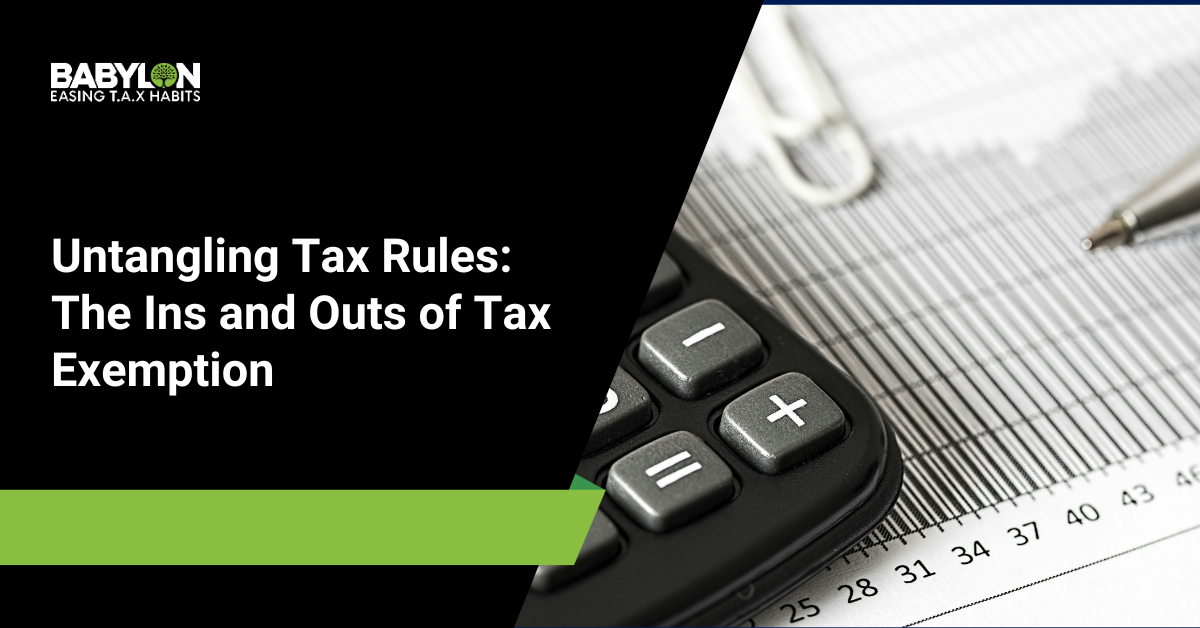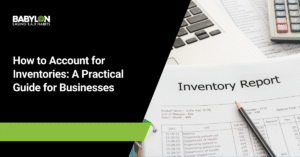Taxes can be overwhelming, especially if you’re unsure of how to manage them effectively.
The good news is that understanding tax exemptions can make a big difference. By applying the right exemptions, you can lower your tax burden and keep more of your hard-earned money.
In this post, we’ll break down tax exemptions in the Philippines, how they work, and how you can benefit from them. Whether you’re an individual or an organization, this guide will help you navigate tax exemptions with ease.
What is Tax Exemption and How Does It Work?
Tax exemptions reduce or eliminate the amount of income subject to tax, applying to all or part of your income. They are granted to encourage certain activities or support groups like non-profits organizations. Moreover, under the TRAIN law, annual incomes of up to ₱250,000 are exempt from income tax.
Generally, understanding how tax exemptions work in the Philippines can help lower your tax burden. For example, certain income types, like agricultural income or earnings by non-profits, may be exempt from tax. However, qualifying for these exemptions often requires meeting specific conditions.
What are the Tax Exception Types?
The Bureau of Internal Revenue (BIR) in the Philippines offers various tax exemptions designed to reduce the tax burden for different groups and activities. Here’s a look at some common tax exemptions recognized by the BIR:
Personal Exemptions
Personal exemptions are allowances given to individual taxpayers based on their circumstances. For example, if you are married or have dependents, you may qualify for additional exemptions. These exemptions lower your taxable income, making it easier to manage your tax payments. Personal exemptions are particularly helpful for low to middle-income earners, as they reduce the overall tax burden.
Organizational Exemptions
Organizational exemptions apply to non-profit groups, educational institutions, and religious organizations. These entities might not have to pay income taxes on certain types of income if they meet the criteria in Section 30 of the National Internal Revenue Code of 1997. However, they must pass specific operational and organizational tests and may still be taxed on income from profit-making activities.
Senior Citizen and PWD Exemptions
Under the Expanded Senior Citizens Act of 2010, senior citizens in the Philippines receive specific tax exemptions. They may be exempt from income taxes on certain incomes, such as pensions and social security benefits. Additionally, they are entitled to discounts on purchases and VAT exemptions to help ease their financial burden.
Exemptions for Overseas Filipino Workers (OFWs)
Under Section 1 of BIR Revenue Regulations No. 1-2011, Overseas Filipino Workers (OFWs) are exempt from income tax on earnings from abroad. This exemption applies as long as their income is not sourced from the Philippines. The aim is to reduce the tax burden for OFWs and acknowledge their economic contribution through remittances.
What are the Advantages of Being Tax-Exempt in the Philippines?
Being tax-exempt in the Philippines provides several benefits for qualified individuals and organizations:
Financial Savings
Being tax-exempt can lead to significant financial savings. For individuals, this means more disposable income for everyday expenses or investments. For organizations, it allows them to allocate more resources to their main activities, such as education, charity, or religious work. This relief is especially helpful during economic challenges.
Encouragement of Positive Contributions
Tax exemptions encourage positive societal contributions. Nonprofits and charities benefit from lower taxes, enabling them to focus on helping others and advancing important causes. Similarly, tax exemptions for educational institutions promote learning and support national development.
Increased Public Support
Having tax-exempt status can boost public support. Organizations may gain more donations and support, while individuals might receive additional community backing for their contributions.
Simplified Administration
Tax exemptions can simplify financial management by reducing the complexity of tax filings. This lets individuals and organizations concentrate on their main activities rather than dealing with complicated tax rules.
Economic Growth
Tax exemptions can stimulate economic activity by freeing up funds for investment and growth. Organizations and businesses can reinvest their savings into expanding their services or operations, contributing to overall economic growth and job creation.
Challenges and Limitations of Being Tax Exempt in the Philippines
Being tax-exempt offers clear benefits, but it also comes with these challenges and limitations:
Strict Compliance Requirements
Maintaining tax-exempt status requires strict adherence to BIR regulations. Organizations must keep accurate records, submit financial documents on time, and use funds for their intended purposes. Failure to comply can result in losing tax-exempt status and facing penalties.
Limited Scope of Exemptions
Tax exemptions often apply to specific types of income but not others. This can be confusing and requires careful planning to ensure all applicable taxes are paid. Also, not all individuals or organizations qualify for every exemption, which can limit their financial benefits.
Ongoing Monitoring and Reporting
Tax-exempt entities need to constantly monitor their activities and report to the BIR. This can be time-consuming and may require additional staff or advisors.
Potential for Misinterpretation
The rules for tax exemptions can be complex and open to different interpretations. This can lead to mistakes or misunderstandings, resulting in unexpected tax liabilities or legal issues.
Limited Eligibility
Not everyone or every organization is eligible for tax exemptions. The criteria can be strict, meaning many who might benefit from tax relief do not qualify, reducing the overall impact of the exemptions.
FAQs
Is a 25k salary taxable in the Philippines?
In the Philippines, a monthly salary of PHP 25,000 may be taxable, but it depends on your total annual income. Under the TRAIN Law, if your annual income is PHP 250,000 or less, you’re exempt from income tax. So, if your total annual income is below PHP 250,000, you likely won’t owe income tax.
Why are taxes so high for Filipino employees?
Taxes may seem high for Filipino employees because of the progressive tax system, where higher incomes are taxed at higher rates. Additionally, mandatory contributions to social security, health insurance, and other government programs can increase the overall tax burden. These taxes help fund essential public services like healthcare, education, and infrastructure.
Why are freelancers obliged to pay taxes?
Freelancers must pay taxes because they earn income in the Philippines. The BIR treats freelancers as self-employed individuals, so they need to report their income and pay taxes accordingly. Not paying taxes can lead to penalties, so freelancers should understand and fulfill their tax obligations.
Manage Your Taxes Efficiently with Babylon2k
Whether you’re an individual or an organization, understanding tax exemptions is crucial for effective financial planning and compliance. Knowing the different types of exemptions, their benefits, and the challenges they bring can make a big difference.
At Babylon2k, we understand these complexities, and we’re to help. Our expert team provides tax services to guide you through every step, so you’ll make the most of your exemptions while staying compliant.
We also offer specialized consultation services and accounting services to address your other financial needs.
Request a quote today, and let us help you manage your tax situation with ease.
For more inquiries, message our AI chatbot, email us at [email protected], or contact us via Viber/WhatsApp at +63-927-945-3382.






